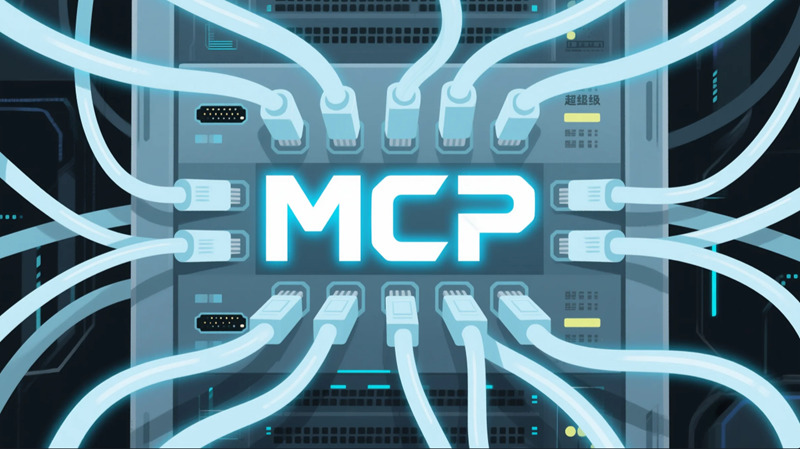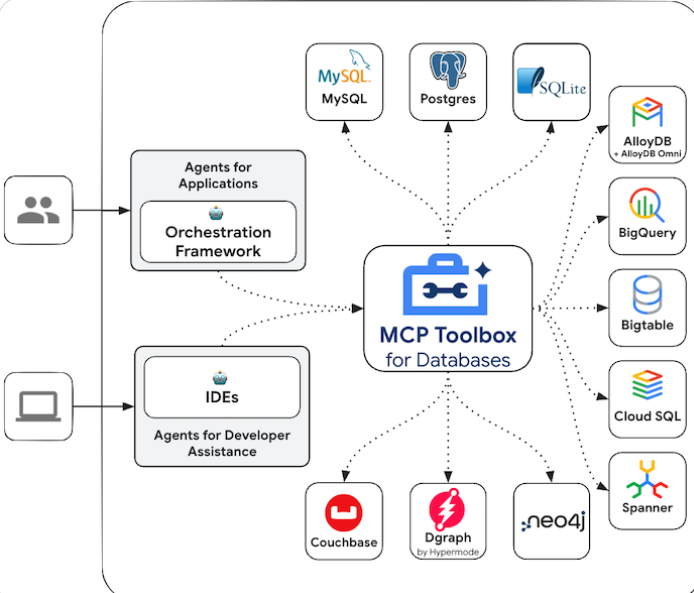Google Open Sources MCP Toolbox for AI-Database Integration
Google Releases Open-Source MCP Toolbox for Database-AI Integration
In a significant move for AI development, Google has open-sourced its MCP Toolbox for Databases in July 2025. This new module from Google's GenAI Toolbox simplifies interactions between AI agents and SQL databases using the Model Context Protocol (MCP).
 Image source note: The image is AI-generated
Image source note: The image is AI-generated
Simplified Development Process
The toolbox dramatically reduces the complexity traditionally associated with connecting AI systems to databases. Where developers previously faced challenges with authentication, connection management, and security controls, the MCP Toolbox accomplishes this integration in under 10 lines of Python code.
"This represents a major leap in developer productivity," explains the documentation. "By abstracting away the complex infrastructure requirements, we're enabling teams to focus on creating value rather than managing connections."
The tool supports reuse across multiple AI agents, significantly improving development efficiency for teams working on large-scale applications.

Project address: https://github.com/googleapis/genai-toolbox
Built-In Security and Performance Features
The MCP Toolbox addresses critical concerns in AI-database integration through several innovative features:
- Connection Pool Management: Optimizes database connection lifecycles to prevent performance bottlenecks from frequent connections
- Advanced Authentication: Supports IAM authentication and GCP Secret Manager to protect sensitive credentials
- Schema Introspection: Automatically analyzes database structure to provide context for AI agents, reducing query errors and hallucinations
These features make the toolbox particularly suitable for production environments where both security and performance are paramount.
Broad Application Potential
The toolbox currently supports several Google Cloud database services including:
- AlloyDB
- Spanner
- Cloud SQL
- BigQuery
This coverage enables diverse applications from hybrid transactional/analytical processing (HTAP) to global-scale implementations. Developers can now more easily create AI solutions ranging from real-time analytics to complex business applications.
The system also supports integrating HTTP endpoints as MCP-compatible tools, allowing expansion beyond database interactions. For example, weather APIs or other external services can be incorporated with minimal configuration.
Open Source Ecosystem Development
Available on GitHub, the fully open-source toolbox includes:
- Complete source code
- Container images
- Detailed installation guides
- Example configurations (including
tools.yamlsetup for BigQuery)
The documentation suggests particularly strong synergies when used with Google's Agent Development Kit (ADK), potentially streamlining the entire AI agent development pipeline.
Current Limitations and Future Directions
The initial release shows some constraints that Google may address in future updates:
- Currently limited to Google Cloud database services
- Some users report latency with simple commands
- Potential need for broader compatibility (PostgreSQL, MySQL support)
The development team appears responsive to community feedback, suggesting ongoing improvements based on real-world usage patterns.
Key Points:
- Simplified integration: Connect AI agents to databases in <10 lines of code
- Enterprise-ready: Built-in security and performance optimizations
- Broad applicability: Supports multiple Google Cloud database services
- Open ecosystem: Fully available on GitHub with comprehensive documentation
- Future potential: Expected to expand beyond current Google ecosystem limitations